MercoPress. South Atlantic News Agency
Tag: dengue virus
-
Friday, February 28th 2020 - 07:22 UTC
Argentine health minister says no Covid-19 cases in the country; all suspects proved negative

Argentina's Health minister Gines Gonzalez García reported on Wednesday from Cordoba that the 21 cases of suspected Covid-19 finally proved negative and underlined that all protocols to face the epidemics are active and in place to try and contain any outbreak.
-
Tuesday, January 26th 2016 - 08:06 UTC
Pan American Health Organization statement on Zika virus transmission and prevention
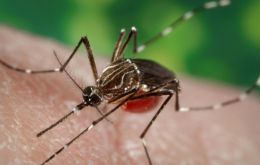
Zika is a mosquito-borne virus that is new to the Americas. Since Brazil reported the first cases of local transmission of the virus in May 2015, it has spread to 21 countries and territories* of the Americas (as of 23 January 2016).
-
Saturday, January 23rd 2016 - 08:28 UTC
Argentina now denies dengue outbreak is an 'epidemic'.

Even as the number of new cases of dengue fever continued to rise in Argentina, the Health Ministry performed a rapid about-face and disavowed a statement made on Wednesday that the outbreak constituted “an epidemic.”
-
Friday, January 22nd 2016 - 07:17 UTC
Argentina admits ”epidemic of (mosquito-borne) dengue fever”, including Buenos Aires city
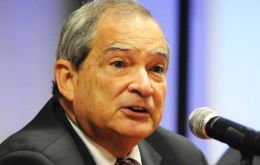
The first cases of Dengue fever struck Buenos Aires City this week as a spate of outbreaks in Greater Buenos Aires and across Argentina’s northeast were labeled “an epidemic” by Health Minister Jorge Lemus.
-
Tuesday, December 1st 2015 - 07:45 UTC
Brazil on alert on possible link between Zika virus and micro-cephalic babies

Brazilian health authorities, who alerted the nation Monday to the rapid spread of the Zika virus, confirmed that up to now it has caused one death and that another six victims are in critical condition and under medical examination.
-
Monday, November 16th 2015 - 07:22 UTC
Mosquito-spread dengue, chickungunya and now Zika threatens the Caribbean and tourism industry
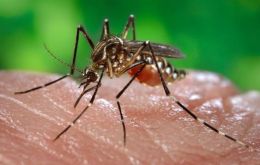
Jamaica's Ministry of Health is urging people to be more vigilant and to clean up their environment and destroy mosquito breeding sites, in light of the announcement by the Caribbean Public Health Agency (CARPHA) that the Zika virus has been detected in a Caribbean Community (CARICOM) nation.
-
Friday, May 22nd 2015 - 08:48 UTC
Caribbean epidemiologic alert following reports of Zika virus in Brazil
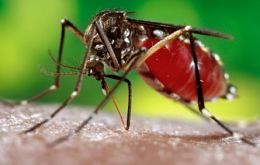
Following reports of suspected Zika virus in Brazil, the health ministries of several Caribbean countries have issued advisories for the mosquito borne viral disease.On Thursday, the Jamaica Health Ministry issued an epidemiological alert after the Pan American Health Organization (PAHO) noted the potential spread of this arbovirus across territories where the vectors (Aedes) are present.
-
Monday, February 9th 2015 - 12:43 UTC
Dengue cases 'explode' by 57% in Brazil during January

Dengue cases in Brazil rose by 57% in January, an increase that the Brazilian government partially attributed to the water crisis in the country's southeastern region. In the first four weeks of the year, Brazil registered 40,196 cases of dengue, compared with 26,017 in the same period of 2014, the Brazilian Health Ministry said.
-
Monday, May 12th 2014 - 06:48 UTC
Brazil downplays, mathematically, the threat of dengue for Cup tourists

A study by Brazilian experts calculates that, in the worst case scenario, just 100 of the 600,000 foreign tourists who will visit Brazil during the World Cup soccer tourney scheduled to begin in June, or less than 0.02% of the total visitors, will contract dengue during their stay in the country.
-
Friday, December 13th 2013 - 18:06 UTC
UK dengue fever health warning for Britons traveling to the Caribbean
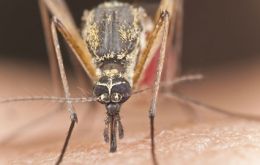
The United Kingdom has issued a new health advisory for Britons travelling to the Caribbean following a surge in the incidence of dengue fever in England. The steep rise in British cases of the mosquito-borne disease has forced the health agency Public Health England (PHE) to warn travelers to be on the alert for signs of the illness after visiting the Caribbean.
